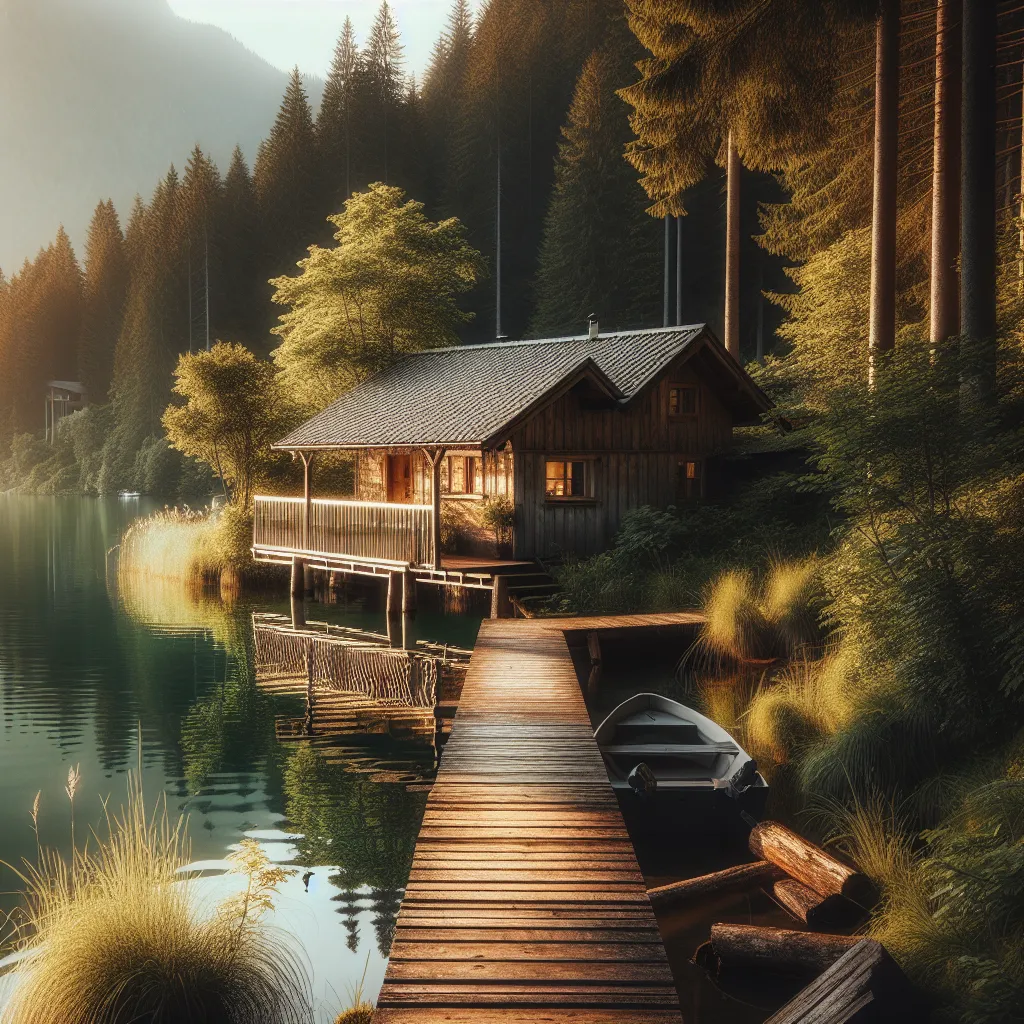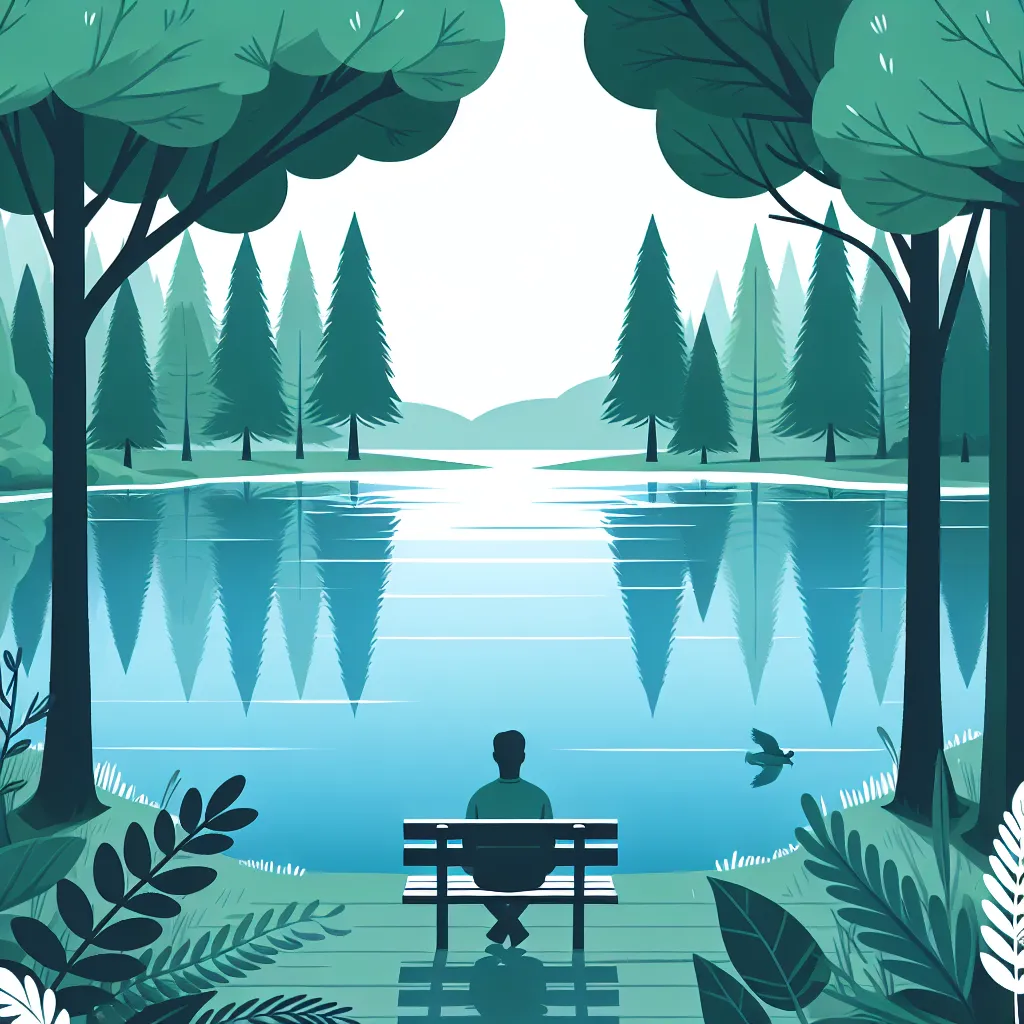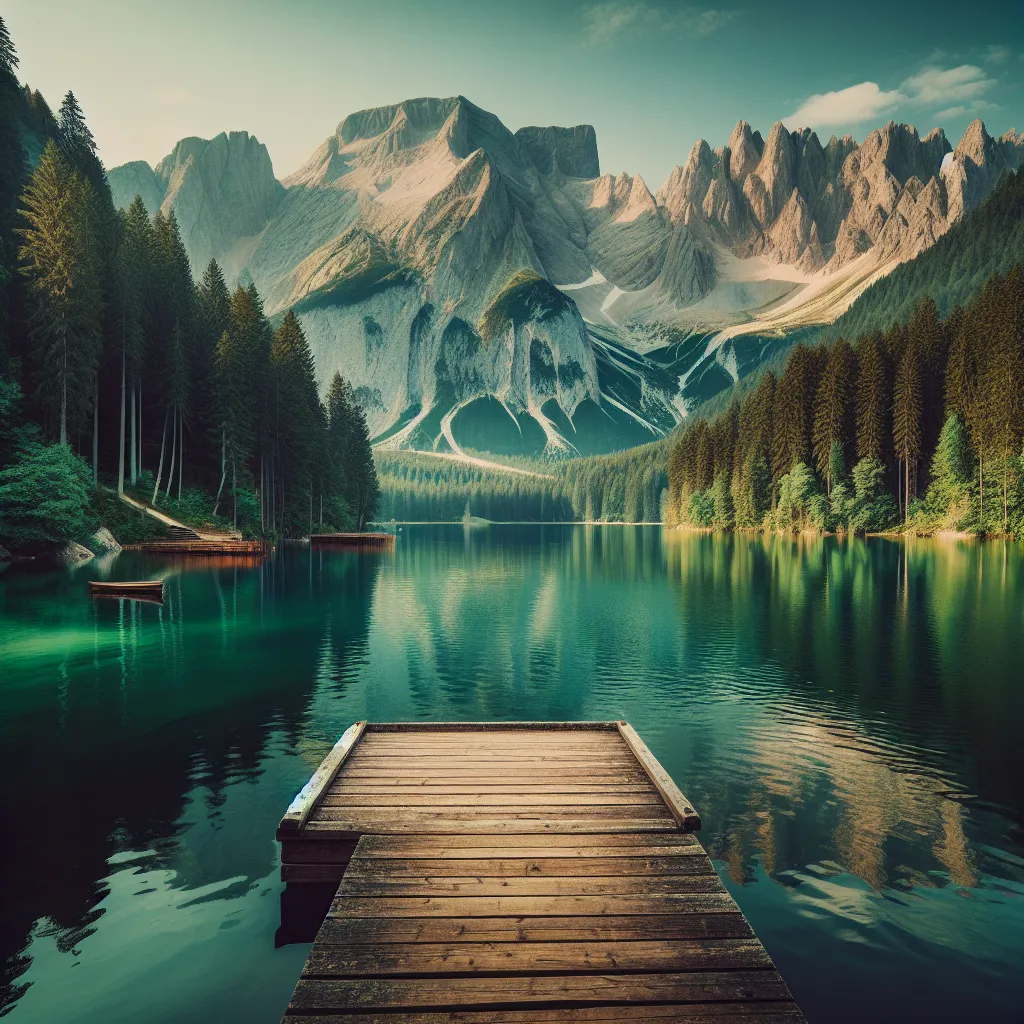As an experienced IELTS Speaking examiner, I’ve seen countless candidates struggle with this topic. Today, I’ll guide you through how to effectively “Describe a place where you go to escape from everyday life” in your IELTS Speaking test. This theme has been a recurring favorite in past exams and is likely to appear in future tests as well.
Nội dung bài viết
 Peaceful Nature Retreat
Peaceful Nature Retreat
Part 1: Introduction and Interview
In this section, the examiner may ask you some general questions about relaxation and escaping from daily routines. Here are a few potential questions:
- Do you find it easy to relax in your daily life?
- How do you usually unwind after a long day?
- Is there a particular place you like to go to when you need a break?
Let’s look at a sample answer for the third question:
Sample Answer (Band 7-8):
“Well, when I need a break from the hustle and bustle of everyday life, I often head to a small park near my home. It’s a tranquil oasis in the middle of the city, with lush green spaces and a serene pond. I find that spending time there really helps me unwind and recharge my batteries.”
Part 2: Long Turn (Cue Card)
Now, let’s move on to the cue card task. Here’s a potential cue card related to our topic:
Describe a place where you go to escape from everyday life.
You should say:
- Where this place is
- How often you go there
- What you do there
- And explain why you go there to escape from everyday life
Sample Answer (Band 7-8):
“I’d like to talk about a secluded beach that I visit to escape from the pressures of daily life. This hidden gem is located about an hour’s drive from my city, tucked away in a small coastal town.
I try to make it there at least once a month, usually on a weekend when I can dedicate an entire day to relaxation. The journey itself is part of the escape, as I drive through picturesque countryside to reach the coast.
Once I arrive, I engage in various activities that help me unwind and reconnect with nature. I often start with a long walk along the shoreline, feeling the sand between my toes and listening to the rhythmic sound of the waves. Sometimes, I’ll bring a book and spend hours reading under the shade of a beach umbrella. If the weather permits, I might go for a refreshing swim in the crystal-clear waters.
The reason I choose this place to escape is multifaceted. Firstly, the natural beauty of the location is breathtaking and instantly calms my mind. The vast expanse of the ocean reminds me of the bigger picture in life, helping me put my daily worries into perspective. Moreover, the lack of crowds and the absence of modern distractions like Wi-Fi or cell phone reception force me to disconnect from the digital world and focus on the present moment. This mental break allows me to recharge my batteries and return to my everyday life feeling refreshed and rejuvenated.”
Sample Answer (Band 8-9):
“I’d like to share with you a place that serves as my sanctuary from the relentless pace of modern life – a secluded mountain cabin nestled in the heart of the Alpine region, about a three-hour drive from my home city.
I make it a point to retreat to this haven at least once every quarter, typically for an extended weekend. The journey there is an integral part of the experience, winding through breathtaking landscapes that gradually transition from urban sprawl to untouched wilderness.
Upon arrival, I immerse myself in a variety of activities that foster a deep sense of relaxation and introspection. My days often begin with meditation on the cabin’s porch, basking in the crisp mountain air and the panoramic views of the surrounding peaks. I frequently embark on invigorating hikes through the nearby trails, allowing the majestic beauty of nature to captivate my senses and clear my mind. In the evenings, I might indulge in some stargazing, marveling at the celestial display that’s often obscured in the city.
The reasons for choosing this particular location as my escape are multifaceted. Primarily, the sheer magnificence of the natural surroundings provides an immediate antidote to the stresses of urban living. The profound silence, interrupted only by the gentle rustling of leaves or the distant call of wildlife, creates an atmosphere conducive to deep reflection and inner peace. Furthermore, the deliberate lack of modern amenities like television or internet connection compels me to disconnect from the digital world, allowing for a genuine detox from the constant barrage of information we face daily. This digital sabbatical, combined with the therapeutic effects of being in nature, enables me to recalibrate my perspective, reinvigorate my spirit, and return to my everyday life with renewed energy and clarity.”
Follow-up Questions
- How has this place changed over time?
- Do you think it’s important for people to have a place to escape to?
Sample Answer (Band 7-8) for Question 2:
“Yes, I believe it’s crucial for people to have a place where they can escape. In today’s fast-paced world, we’re constantly bombarded with information and demands on our time. Having a retreat allows us to step back, recharge, and gain a fresh perspective on our lives. It’s essential for maintaining good mental health and preventing burnout.”
Sample Answer (Band 8-9) for Question 2:
“I firmly believe that having a personal sanctuary is not just important, but essential in our modern society. In this era of perpetual connectivity and information overload, the ability to physically and mentally detach from our daily routines is paramount to maintaining psychological equilibrium. A place of escape serves as a vital counterbalance to the relentless demands of contemporary life, offering a space for introspection, rejuvenation, and recalibration of one’s priorities. It acts as a pressure release valve, allowing individuals to decompress and return to their responsibilities with renewed vigor and clarity of purpose. Moreover, these personal retreats can foster a deeper connection with oneself and the natural world, which is increasingly critical in our predominantly urban and digitally-driven existence.”
Part 3: Two-way Discussion
In this section, the examiner will ask more abstract questions related to the topic. Here are some potential questions and sample answers:
- Why do you think some people prefer to stay at home rather than go out to relax?
Sample Answer (Band 7-8):
“There are several reasons why some individuals might choose to stay at home for relaxation. Firstly, home is often seen as a safe haven where people can truly be themselves without any social pressures. Additionally, staying at home is usually more cost-effective than going out. Some people might also find that their homes are equipped with all the amenities they need for relaxation, such as a comfortable sofa, a good book collection, or a bathtub for a relaxing soak.”
Sample Answer (Band 8-9):
“The preference for home-based relaxation can be attributed to a multitude of factors. Primarily, one’s home often represents a personalized sanctuary, meticulously curated to cater to individual comfort and preferences. This familiarity breeds a sense of security and control that may be lacking in external environments. Moreover, in our increasingly urbanized world, home can serve as a buffer against the sensory overload often experienced in public spaces. Financial considerations also play a role, as home relaxation is typically more economically viable than external leisure activities. Additionally, the rise of technology and home entertainment systems has significantly enhanced the appeal of domestic relaxation, providing access to a vast array of recreational options without the need to venture out. Lastly, for many, home relaxation aligns with the growing trend of mindful living and slow living philosophies, which emphasize finding contentment and peace in one’s immediate surroundings.”
- How has technology changed the way people relax?
Sample Answer (Band 7-8):
“Technology has significantly transformed the way people unwind. On one hand, it has provided numerous new avenues for relaxation, such as streaming services for movies and music, or mobile apps for meditation and mindfulness. These tools make relaxation more accessible and convenient. However, technology can also make it harder to truly relax, as we’re often tempted to check our phones or emails, even during leisure time. This constant connectivity can make it challenging to fully disconnect from work and daily stresses.”
Sample Answer (Band 8-9):
“The impact of technology on relaxation methods has been profound and multifaceted. On one hand, it has democratized access to a vast array of relaxation techniques and experiences. Virtual reality platforms, for instance, can transport individuals to serene environments without leaving their homes, while AI-powered meditation apps offer personalized guidance for mental relaxation. Streaming services have revolutionized entertainment, providing on-demand access to a plethora of content tailored to individual preferences.
However, this technological integration into our relaxation habits is not without its drawbacks. The omnipresence of devices has led to a phenomenon known as ‘technostress‘, where the very tools meant to aid relaxation can become sources of anxiety and distraction. The constant connectivity enabled by smartphones can make it challenging to truly disengage from work or social obligations, leading to a state of perpetual partial attention that undermines genuine relaxation.
Moreover, technology has blurred the lines between work and leisure time, making it increasingly difficult for individuals to compartmentalize these aspects of their lives. This has given rise to the need for digital detox practices, where people intentionally disconnect from technology to achieve a more authentic state of relaxation.
In essence, while technology has expanded our relaxation toolkit, it has simultaneously created new challenges in our quest for genuine rest and recuperation, necessitating a more mindful and balanced approach to its use in our leisure activities.”
Key Vocabulary and Phrases for High Scores
-
Sanctuary /ˈsæŋktʃueri/ (noun): A place of refuge or safety.
Example: “The forest became my sanctuary, away from the noise of the city.” -
To unwind /ʌnˈwaɪnd/ (verb): To relax after a period of work or tension.
Example: “I like to unwind by taking a long bath after a stressful day.” -
Rejuvenate /rɪˈdʒuːvəneɪt/ (verb): To give new energy or vigor to; revitalize.
Example: “A week in the mountains always rejuvenates my spirit.” -
Tranquil /ˈtræŋkwɪl/ (adjective): Free from disturbance; calm.
Example: “The tranquil lake reflected the surrounding mountains like a mirror.” -
To disconnect /ˌdɪskəˈnekt/ (verb): To separate or isolate oneself from something.
Example: “I need to disconnect from social media to truly relax.” -
Respite /ˈrespɪt/ (noun): A short period of rest or relief from something difficult.
Example: “The weekend getaway provided a much-needed respite from our busy lives.”
Examiner’s Advice
To excel in the IELTS Speaking test, particularly when describing a place you go to escape everyday life:
- Use vivid descriptive language to paint a clear picture of your chosen place.
- Incorporate a range of vocabulary, including idioms and phrasal verbs, to demonstrate your language proficiency.
- Provide specific examples and personal anecdotes to support your points.
- Practice speaking about various locations and activities related to relaxation and escape.
- Work on your fluency by regularly discussing this topic with friends or language partners.
- Be prepared to discuss abstract ideas related to relaxation and work-life balance for Part 3.
Remember, the key to success in IELTS Speaking is not just about what you say, but how you say it. Confidence, fluency, and the ability to express your ideas clearly are all crucial factors in achieving a high score.
For more tips on how to excel in IELTS Speaking, check out our guides on describing a place you feel at peace and talking about a time you felt very relaxed.


